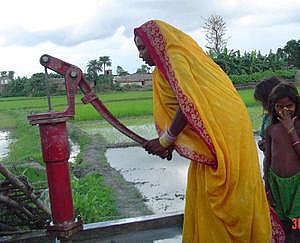How Seattle helps with world's water challenges
This article describes the work of Seattle-based nongovernmental organizations and government agencies engaged in projects abroad to assist the more than 783 million people who live without access to clean water in some of the poorest regions in the world.

Water is something most people in the Puget Sound region take for granted. Yet in many developing nations, access to clean water and effective sanitation can spell the difference between life and death.
Unbeknownst to many, the Seattle-Puget Sound area is home to a cadre of nongovernmental organizations and government agencies engaged in projects abroad to assist the more than 783 million people who live without access to clean water in some of the poorest regions in the world. The local support for water and sanitation ranges from intensive nonprofit efforts in remote villages to major international undertakings and occasional consultations by government officials with colleagues in other nations.
Access to water is crucial to good nutrition, a reality recognized by the World Water Day events here and elsewhere last month organized around the theme of water and food security. More than 70 percent of the water used globally goes towards agriculture. One seventh of the world's population, nearly one billion people, suffers from chronic hunger. Over 3,000 children die everyday from lack of clean water. Food production is dependent upon sufficient available water, which in turn requires reducing water pollution and promoting effective sanitation systems.
(Photo: A woman draws water at the well in the village of Mujelia, Dhanusha District, Nepal/Dr. Dibya Kansakar)

